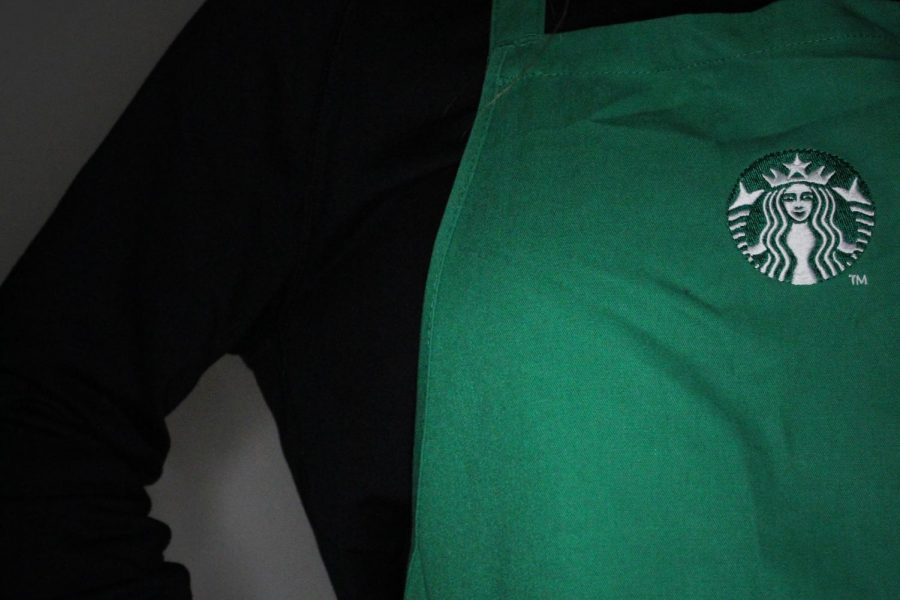Customer servants
Finding a job is a right of passage for many high schoolers — and so is the abuse that comes along with minimum wage
Whether at restaurants like Starbucks or McDonald’s or retailers like Meiger and JCPenney, students sometimes have to put up with abuse from customers — often following an already overwhelming school day
February 7, 2020
A teenager clocks into her job, dreading the next six hours of her life. She puts her uniform over her head, and tops it off with the mandatory hat that always makes her hair look unwashed after she wears it for too long. She takes a deep breath, reminds herself that it’s all for the paycheck, and with a plastered-on smile, repeats her mantra: “Hello! What can I get for you today?”
Students with jobs are often disrespected in the workplace due to the stereotype that younger generations do not take things seriously. The term “respect your elders” is widely used to in instances when a child says something off-putting to their parent adult authority. Although adults in the workplace often get mistreated by customers as well, there is something about being a teenager that provokes different treatment than that of their older coworkers. Whether it be people believing there is a lack of maturity or knowledge, having a job as a teenager oftentimes results in less-than-satisfactory levels of respect towards them.
Whether the job is food or retail, most teens with jobs have some interaction with customers. “This middle-aged man came in, and when I told him there would be a short wait on the food because we were short-staffed,” explained senior Kylee O’Brien. “He called me r——-, asked how my parents died, and what forest I grew up in because ‘there’s no way a person raised by civilized humans would ever be so f—— stupid.’” Obviously, not all customers are this way, and many students who have jobs have not had interaction to quite this extent. Though others have not experienced this level of disrespect from customers, that does not mean that customers are not sometimes rude in other ways.
“This one woman called us out for her order being late because she called it in the day before, but our manager didn’t inform us there was a pickup order,” says senior Carter Koura. “So she comes in screaming and complaining because we didn’t have it, and then decided to complain about me and [my girlfriend, who works with me] on our break. She said we were giving her dirty looks and that we were talking bad about her, which we weren’t, then said she wanted to smack [my girlfriend] and called her a b—- in the complaint.”
Though teenagers receive frequent disrespect in the workplace, they believe it doesn’t necessarily have to do with their age. According to some teens, they feel as though the disrespect they receive from customers would not diminish if they were adults. Some of their adult coworkers are also treated poorly and isn’t necessarily a result of their age.
There is an undeniable pressure on young people to get a job. Some teenagers have an urge to be more independent, and sometimes, that means getting a job in order to pay for things they want that their parents may not want to purchase. Another viewpoint are the students who feel obligated to get jobs to help their families pay for things. “Prices for everything are going up — insurance, gas prices, everything,” says senior Eddie Ferrenti. “So it’s becoming harder to support parents. Once we start [participating in, for example] sports or athletics, everything starts adding up the price.”
Going to school is hard enough. Adding the stress of going to work after school adds onto the stress of school, and it all adds together. When shopping at stores or ordering from your favorite fast food joint, these stories reminder consumers to take into consideration the lives of the people who work there. They have emotions too, just like any other person. The verbal or emotional abuse these workers soak up throughout the day oftentimes comes home with them. No one should leave a place feeling fine after intentionally making someone’s workday more difficult than it has to be.











